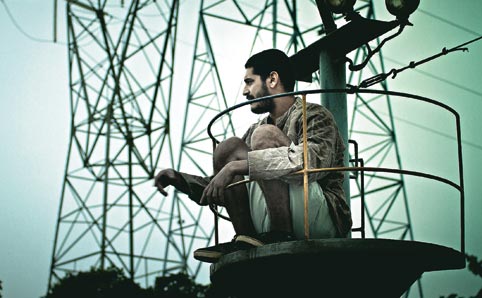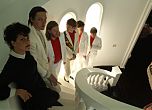
There’s never been a lack of good rappers from this city – names like Sabotage and Racionais MCs spring to mind – but their rhymes about life on the street had always stayed there, lacking the crossover appeal to reach the masses.
With his album Nó Na Orelha (‘knot in the ear’), already being heralded as one of the best new records of the year, red-hot MC Criolo is showing how it should be done. He matches rhymes about life in São Paulo, and in its Grajaú favela where he grew up, on the city’s gritty south side, with samba, funk and Afro-Brazilian percussion.
And whereas star rapper Marcelo D2 came to fame using a US model of commercial hip hop, substituting samba for American soul rhythms and making MTV-ready party jams in the process, Criolo has made a hip hop album using live instrumentation, his life experiences in the favela, and a palpable passion for Brazilian music.
His love for the music is evident in his soulful deliveries of the album’s samba and bolero (ballad) lyrics – this is a man who can sing as well as he can rap. On the track ‘Não Existe Amor em SP’ in particular – ‘Love Doesn’t Exist in SP’ – there’s a powerfully yearning quality to the vocals.
Yet his crooning is definitely from the streets, and it’s a dichotomy Criolo feels is necessary: ‘We have to be aggressive because people don’t respect us for the love we have. I have to come at them hard, but with a lot of love.’ This attitude is prominent in his live shows where, working in tune with a strong beat and his melodic voice, he’s capable of whipping a crowd into a rhythmic frenzy.
Criolo brought his extraordinary album to SESC Vila Mariana in June 2011 for its official launch party – it was originally released as a free download – with a group of 15 musicians in tow. So, as well as seeing Criolo in action, it was the perfect chance to catch some of São Paulo’s finest young musicians on horns, strings, bass, turntables, cavaquinho (the tiny little ukelele-like guitar strummed during samba), keyboards and percussion – and to witness Brazilian hip hop in evolution.



